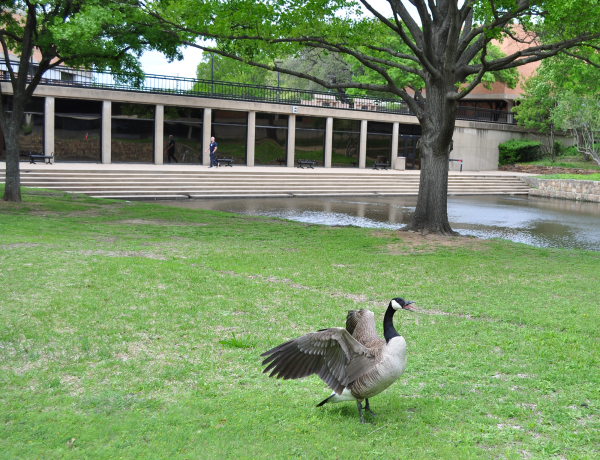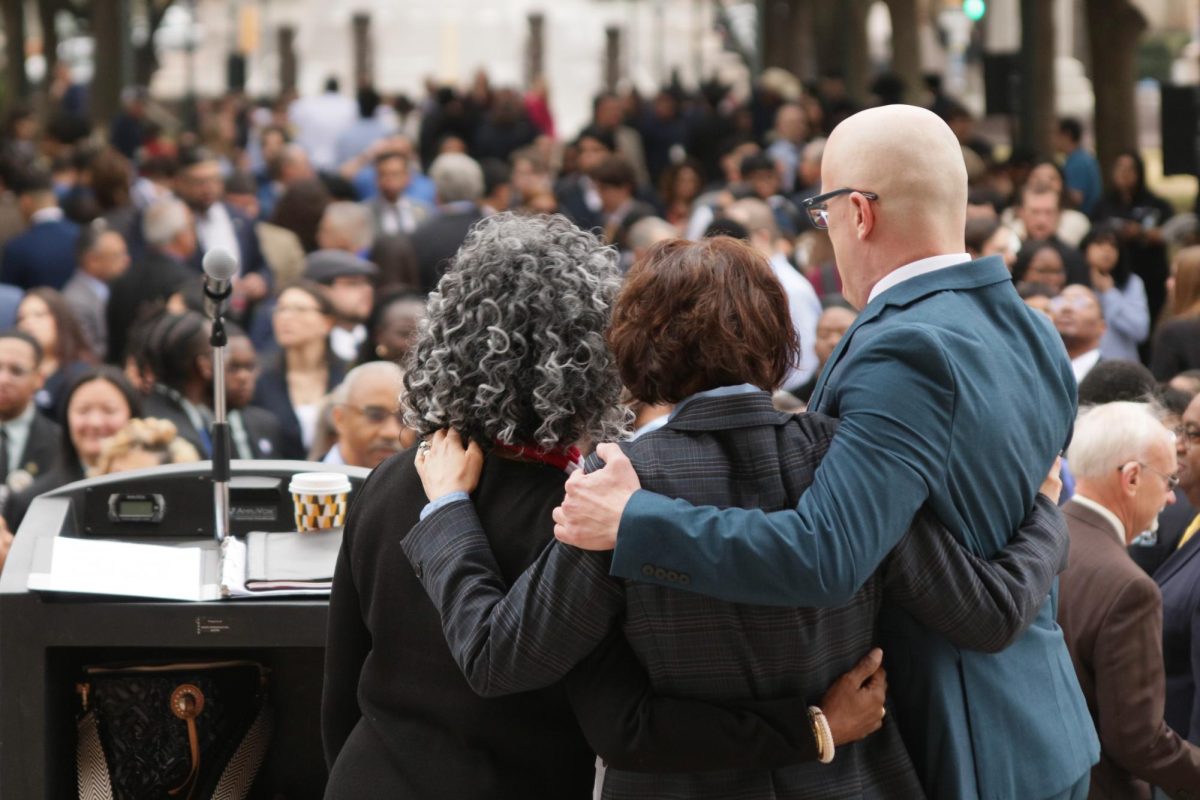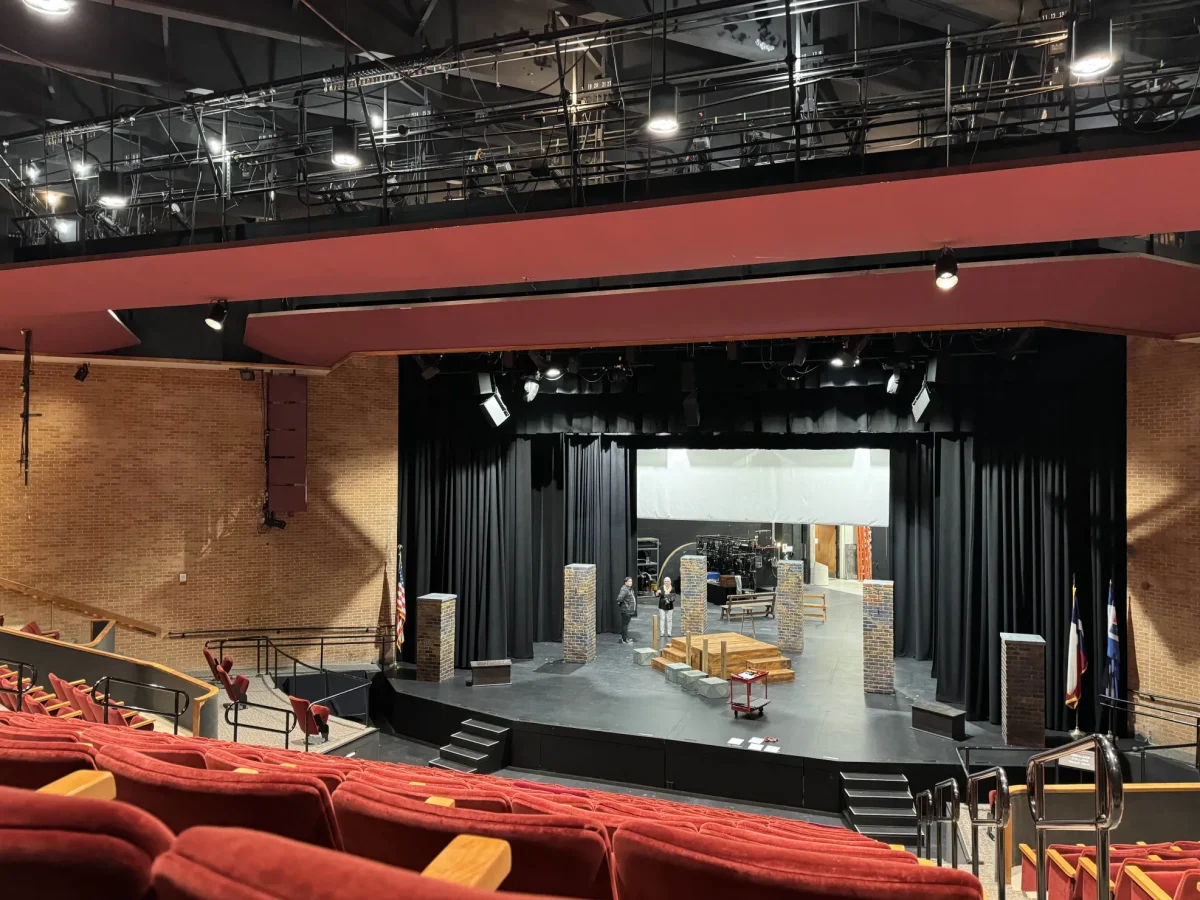As the season transitions to spring, Richland campus witnesses a familiar sight: geese and ducks wandering around, coexisting with students, faculty and staff. Among these residents, the nesting geese are in the spotlight. However, it’s imperative to understand the significance of nesting season and the importance of respecting these birds.

Each year, as temperatures warm, geese begin their nesting rituals. These rituals involve selecting a suitable nesting site, typically near water bodies such as ponds or streams, and creating nests from twigs, grass and feathers.
Identifying a nesting goose is relatively straightforward if one knows what to look for. The parents exhibit protective behavior, often hissing or honking loudly to ward off potential threats. Moreover, they can be observed sitting on their nests, incubating their eggs to ensure the survival of their offspring.
Despite the appeal of observing these nesting geese up close, it’s necessary to maintain a respectful distance. Interfering with nesting geese in general is not only unethical but also illegal. In fact, it constitutes a federal offense under the Migratory Bird Treaty Act.
The Migratory Bird Treaty Act safeguards migratory birds, including geese, by prohibiting actions such as disturbing nests, eggs or chicks without proper authorization. This legislation recognizes the importance of preserving avian populations and their habitats, and the need for human intervention to be conducted responsibly.
Violating the Migratory Bird Treaty Act can result in severe consequences, including fines and penalties. Disrupting nesting activities can have detrimental effects on the geese population, consequently messing with their reproductive cycles and potentially endangering their survival.
“Geese are considered domesticated once they find a home and they stay there forever. So, since we’ve had these geese for a long time, it’s not considered a federal offense anymore. We still want students to respect the wildlife,” said Capt. Mark Lozano from Richland’s Police Department.
As members of the Richland community, it’s still our duty to uphold the principles of wildlife conservation. So, as you walk through Richland campus this spring, admire the nesting geese from a respectful distance, knowing that your actions contribute to the preservation of these creatures and the environment they call home.






